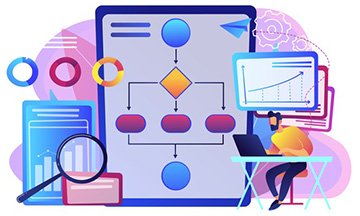Balanced Scorecard (BSC) Training Course
| Date | Format | Duration | Fees | |
|---|---|---|---|---|
| 06 May - 10 May, 2024 | Live Online | 5 Days | $2050 | Register |
| 10 Jun - 14 Jun, 2024 | Live Online | 5 Days | $2050 | Register |
| 28 Jul - 01 Aug, 2024 | Live Online | 5 Days | $2050 | Register |
| 11 Aug - 19 Aug, 2024 | Live Online | 7 Days | $2867 | Register |
| 16 Sep - 20 Sep, 2024 | Live Online | 5 Days | $2050 | Register |
| 07 Oct - 15 Oct, 2024 | Live Online | 7 Days | $2867 | Register |
| 25 Nov - 29 Nov, 2024 | Live Online | 5 Days | $2050 | Register |
| 16 Dec - 24 Dec, 2024 | Live Online | 7 Days | $2867 | Register |
| Date | Venue | Duration | Fees | |
|---|---|---|---|---|
| 27 May - 31 May, 2024 | Istanbul | 5 Days | $5125 | Register |
| 24 Jun - 28 Jun, 2024 | Istanbul | 5 Days | $5125 | Register |
| 14 Jul - 18 Jul, 2024 | Doha | 5 Days | $4345 | Register |
| 25 Aug - 05 Sep, 2024 | Doha | 10 Days | $8225 | Register |
| 02 Sep - 06 Sep, 2024 | London | 5 Days | $5125 | Register |
| 28 Oct - 08 Nov, 2024 | Dar Es Salam | 10 Days | $8225 | Register |
| 11 Nov - 15 Nov, 2024 | Kampala | 5 Days | $4345 | Register |
| 02 Dec - 13 Dec, 2024 | Cairo | 10 Days | $8225 | Register |
Course Overview
What is the concept of a Balanced Scorecard (BSC)? The Balanced Scorecard is a business structure. It is used for managing and tracking the organization’s strategy. The very term ‘balanced scorecard’ derives from the concept of looking at strategic measures in a very balanced view of performance concerning the financial health of the organization.
However, in this approach, the organizational analysts evaluate not only the financial performance but also it takes into the regard the performance indicators of customer service, internal process, and learning and growth achieved of the business.
The Balanced Scorecard framework is a very important management system. It provides management with feedback on both internal practices and external outcomes to unceasingly improve business strategies, results, and performance.
The Balanced Scorecard was formulated and published by Robert Kaplan and David Norton in the year 1992. A balanced scorecard is a management approach that acknowledges that financial measures by itself is not satisfactory and that an organization needs a more all-inclusive.
It needs to have a set of balanced measures that can mirror different Key Performance Indicators that will contribute to enhanced performance and achieve the strategic goals of the organization.
The BSC concept is driven by the principle that there is a cause-effect relationship between learning, business processes, customers, and financial results. The Balanced Scorecard evaluates and tracks all-round performance across the entire organization.
How important is Balanced Scorecard as today’s management model? The Balanced Scorecard gives stakeholders, business partners, strategists, business analysts, and the management of the 360-degree insight to improve the decision-making process.
BSC also accepts the idea that certain selected measures influence the behaviour of people in the organization. Using this systematic framework connects the dots between the various components of projects and departments working for the organization.
Data collection is key to providing quantitative results to derive qualitative strategies. That is why several companies have already implemented a balanced scorecard methodology. Companies have recognized that the scorecard brings out a vital change to improvise their processes for profitability.
Zoe Talent Solutions offer you the most practical and effective steps to develop and implement this framework within your organization through this training program.
Course Objectives
The main objective of Balanced Scorecard (BSC) Training is to enable you to—
- Understand the major concepts and 4 pillars of the balanced scorecard
- Focus around the key requirements and metrics of the business
- Enable you to implement a sturdy performance review consistently
- Learn to formulate organizational strategy and plans
- Align yourself with organizational goals and performance
- Translate organizational plans into measurable KPI’s
- Effectively communicate data and plans to different levels
- Align individuals objectives with the companies objectives
- Design and deploy a scorecard within the existing structure of businesses
Training Methodology
Zoe Talent Solutions offers you a very practical training program with numerous vital concepts, frameworks, and techniques.
We also offer customization to suit the training requirements of the audience and their professional backgrounds. The powerful presentations by expert trainers form a major part of the program.
Training will be very participative and participants are encouraged to share their experiences practices from organizations. At Zoe Talent Solutions follow the Do–Review–Learn–Apply Model of training.
Organisational Benefits
Organizations will benefit in the following ways whose employees take up this Balanced Scorecard (BSC) Training Certification Course:
- Develop and implement a BSC architecture in a regulated manner
- Overcome challenges in strategy implementation
- The organization can execute structure to its strategy
- Improved communication execution
- Ensure individual goals link to the organizational tactics
- Helps create and select KPIs that will help the management to execute a strategic plan
- Provides management and stakeholders with a complete picture of business performance
Personal Benefits
Professionals attending this Balanced Scorecard (BSC) Training Certification Course will have the below individual benefits:
- Obtain identification as a Balanced Scorecard Management Professional
- Employees will be able to draft better strategic plans
- The BSC system will enable individuals to collect data and improvized reporting
- Managers will feel empowered in identifying areas that need improvement
- Managers will be able to allocate resources properly as they understand this approach
- Individuals will be more focused on the right objectives for career growth plans
Who Should Attend?
This course is designed for people in every sector of all organizations who are responsible for designing, developing, implementing, and maintaining a sturdy organizational performance management system.
This Balanced Scorecard Certification is important for those who are responsible for developing efficient performance instruments by selecting appropriate software tools, working on scorecards, reporting, and developing strategic decision making and action plans.
All executives, analysts, managers, policymakers, business owners, HR, and people in management should enroll in this program.
Course Outline
This Balanced Scorecard (BSC) Training program will cover the following areas that are essential to understanding the key areas of this management concept:
Module 1
- Origins and Progression of the Balanced Scorecard Methodology
- Balanced Scorecard as a management concept for different organizations
- Advantages of Balanced Scorecard to increase performance
- Strategies, Design, and Execution of the BSC in existing frameworks
- Balancing non-financial and financial aspects of business
- The Cause and Effect Relationship
- Employee influence, productivity, and accountability
- Developing an Efficient Balanced Scorecard that works
Module 2
- Successful BSC Program Launch: The 9 Steps
- Assessment of current data and standings
- Strategy Profile
- SMART Strategic Objectives
- Strategy value-chain Mapping
- Performance Measures (KPIs)
- Strategic Initiatives to close performance gaps
- Performance Analysis of evidence-based data
- Organizational Alignment: Integration
- Evaluation
Module 3
- Balanced Scorecard Management System: Strategy Mapping and Architecture
- Linking values, mission, value drivers, and vision
- Creating a BSC Strategy Map for boosting performance
- Organizational Performance Scorecard
- Profiling priorities and linking them to BSC
- Desired State of Evolution formulation
- Understanding the implementation of the 4 pillars of the Balanced Scorecard
Module 4
- Financial Perspective in Balanced Scorecard
- Basic Strategic Ideas related to finance
- Measuring these Ideas concerning other non-financial aspects
- Correct data, reporting, and analysis
- Simplifying the financial overview
- Avoiding pitfalls with financial aspects of BSC
Module 5
- Customer Standpoint in Balanced Scorecard
- Customer Market Segment
- Customer perspective statistics and methods
- Customer Value Plan
- Core Customer Measurements
- Linking Customer Perspective with Financial Perspective
Module 6
- Internal Business Process Viewpoint in Balanced Scorecard
- Operations Processes and its management
- Customer Service Management Processes
- Regulations, Processes, and Compliance
- Fundamental Business objectives and KPI’s
- Linking this measurement with Financial and Customer Perspective
Module 7
- Learning and Growth Perspective
- Human Resource Wealth
- Information and Data Hub
- Organizational Capacity building
- Alignment of Intangible resources with a strategic approach
- Linkages with the above 3 Perspectives
Module 8
- Balanced Scorecard strategy-focused organization
- Cascading and simplifying a balanced scorecard
- Strategic and Critical Thinking
- Best Performance Management Processes
- Performance Scorecards and Dashboards
- KPI Documentation and Policies
Module 9
- Common Pitfalls in a Balanced Scorecard
- Re-working poorly designed scorecard
- Key enablers: Technology and innovation
- Balanced scorecard: Best Practices
- Practical Implementation in different organizational structures











